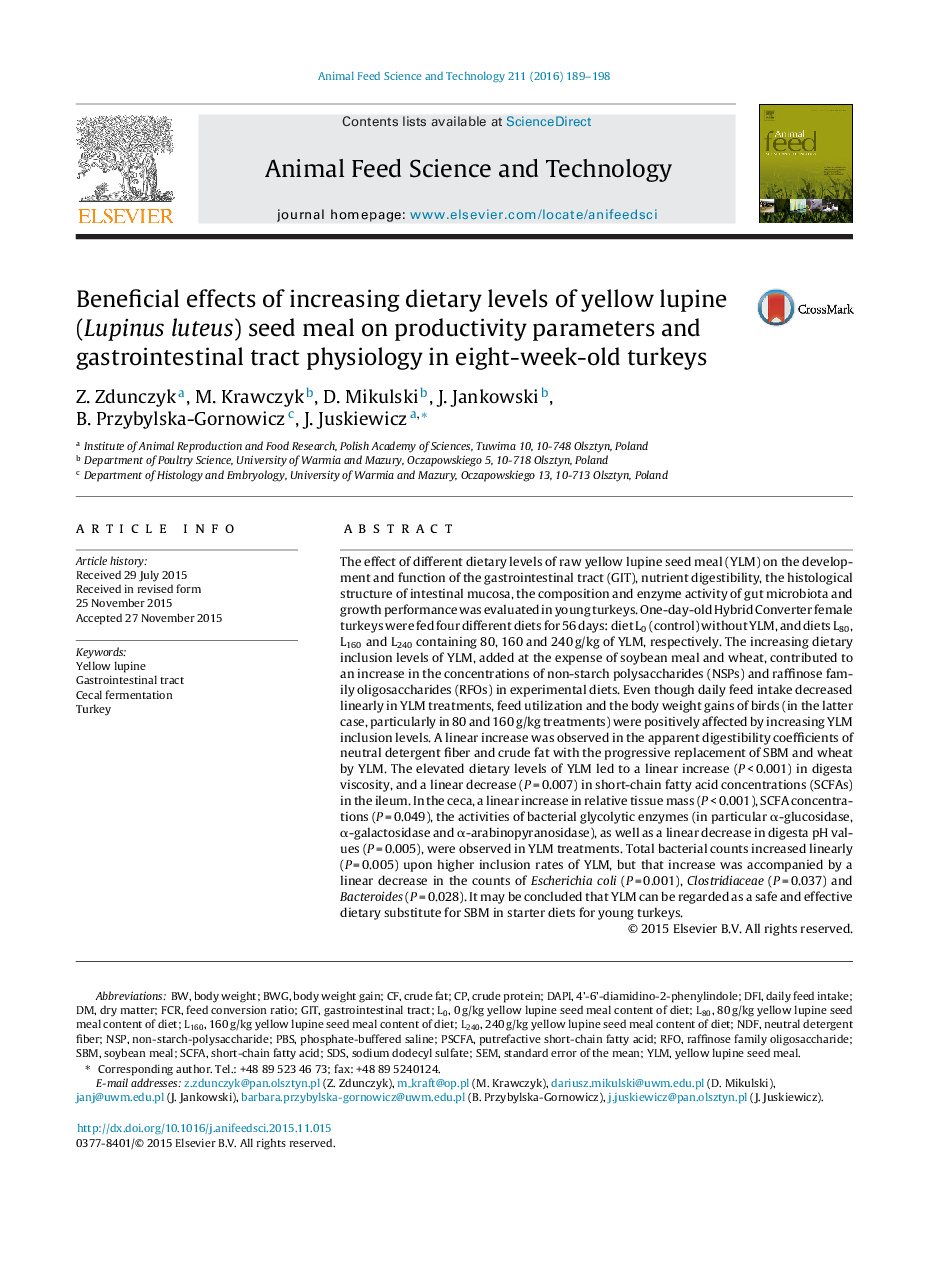| Article ID | Journal | Published Year | Pages | File Type |
|---|---|---|---|---|
| 8491336 | Animal Feed Science and Technology | 2016 | 10 Pages |
Abstract
The effect of different dietary levels of raw yellow lupine seed meal (YLM) on the development and function of the gastrointestinal tract (GIT), nutrient digestibility, the histological structure of intestinal mucosa, the composition and enzyme activity of gut microbiota and growth performance was evaluated in young turkeys. One-day-old Hybrid Converter female turkeys were fed four different diets for 56 days: diet L0 (control) without YLM, and diets L80, L160 and L240 containing 80, 160 and 240 g/kg of YLM, respectively. The increasing dietary inclusion levels of YLM, added at the expense of soybean meal and wheat, contributed to an increase in the concentrations of non-starch polysaccharides (NSPs) and raffinose family oligosaccharides (RFOs) in experimental diets. Even though daily feed intake decreased linearly in YLM treatments, feed utilization and the body weight gains of birds (in the latter case, particularly in 80 and 160 g/kg treatments) were positively affected by increasing YLM inclusion levels. A linear increase was observed in the apparent digestibility coefficients of neutral detergent fiber and crude fat with the progressive replacement of SBM and wheat by YLM. The elevated dietary levels of YLM led to a linear increase (P < 0.001) in digesta viscosity, and a linear decrease (P = 0.007) in short-chain fatty acid concentrations (SCFAs) in the ileum. In the ceca, a linear increase in relative tissue mass (P < 0.001), SCFA concentrations (P = 0.049), the activities of bacterial glycolytic enzymes (in particular α-glucosidase, α-galactosidase and α-arabinopyranosidase), as well as a linear decrease in digesta pH values (P = 0.005), were observed in YLM treatments. Total bacterial counts increased linearly (P = 0.005) upon higher inclusion rates of YLM, but that increase was accompanied by a linear decrease in the counts of Escherichia coli (P = 0.001), Clostridiaceae (P = 0.037) and Bacteroides (P = 0.028). It may be concluded that YLM can be regarded as a safe and effective dietary substitute for SBM in starter diets for young turkeys.
Keywords
NSPCecal fermentationL80NDFBWGSBMDFIDAPIFCRSCFAraffinose family oligosaccharideRFOGITL160PBSSDSshort-chain fatty acidBody weight gainTurkeystandard error of the meanGastrointestinal tractsodium dodecyl sulfateneutral detergent fiberdry matterPhosphate-buffered salineSEMDaily feed intakefeed conversion ratiobody weightcrude proteinCrude fatSoybean meal
Related Topics
Life Sciences
Agricultural and Biological Sciences
Animal Science and Zoology
Authors
Z. Zdunczyk, M. Krawczyk, D. Mikulski, J. Jankowski, B. Przybylska-Gornowicz, J. Juskiewicz,
